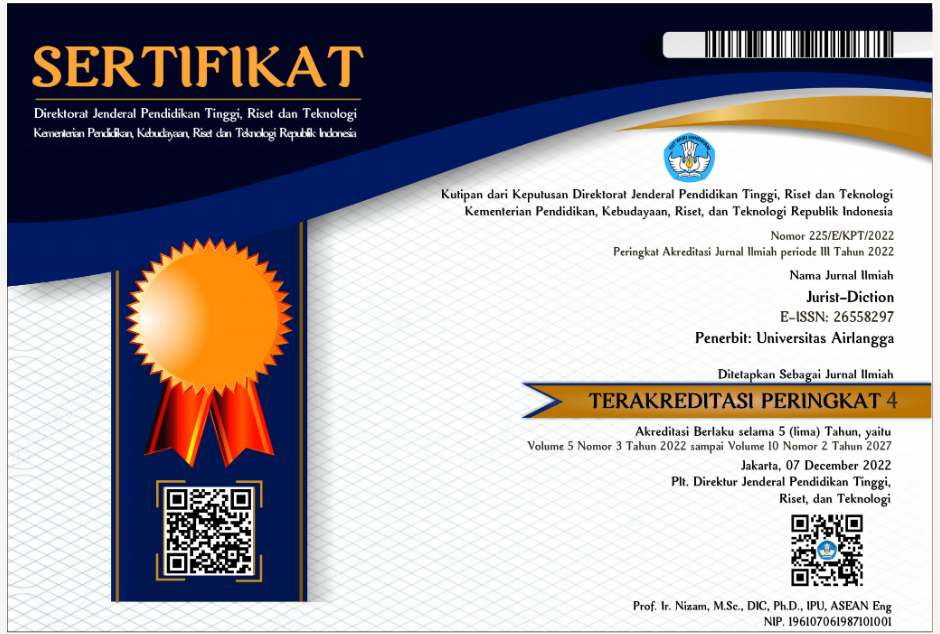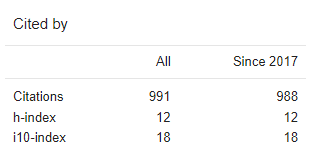A Comparative Analysis of the Scope of Immaterial Damage in Indonesia and the Netherlands
The determination of immaterial damage often hinges on judicial discretion, a practice that raises important questions of fairness and consistency across jurisdictions. This paper examines how such discretion operates in Indonesia and the Netherlands. Using a normative legal method and comparative analysis, the study evaluates statutory provisions and judicial practice. Dutch law recognizes three grounds for compensation in cases of immaterial damage. In practice, however, judges apply a two-tiered test: first, to determine whether the victim’s situation falls within the recognized grounds, and second, to assess whether the suffering is of sufficient severity. In contrast, Indonesian law provides no explicit rules on immaterial damage, leaving judges with broad discretion but without official guidelines. The reliance on discretion in both jurisdictions highlights risks of subjectivity and underscores the need for clearer standards to ensure fairness and legal certainty in compensation.
Burgerlijk Wetboek (Dutch Civil Code)
Kitab Undang-Undang Hukum Perdata Republik Indonesia (Indonesian Civil Code)
Undang-Undang Republik Indonesia Nomor 48 Tahun 2009 tentang Kekuasan Kehakiman (Law Nr. 48 of Year 2009 concerning Judicial Authority)
Putusan Mahkamah Agung Nomor 1226 K/Sip/1977 (Supreme Court Decision Number 1226 K/Sip/1977 of 13 April 1978)
Putusan Mahkamah Agung Nomor 550 K/Sip/1979 (Supreme Court Decision Number 550 K/Sip/1977 of 8 May 1980)
Putusan Mahkamah Agung Nomor 3197/K/Pdt/1991
Putusan Mahkamah Agung Nomor 650/PK/Pdt/1994
Putusan Pengadilan Negeri Jakarta Selatan Nomor 323/Pdt.G/2012/PN.Jkt.Sel
Putusan Pengadilan Negeri Sidoarjo Nomor 205/Pdt.G/2019/PN.Sda
Putusan Pengadilan Negeri Singaraja Nomor 544/Pdt.G/2017/PN.Sgr
ECLI:NL:GHSE:2014:1719
ECLI:NL:GHSHE:2010:BX 6555
Badrulzama, M.D (1983). KUHPerdata, Buku III, hukum perikatan dengan Penjelasan, Penerbit Alumni
Kusumaatmadja. M, Hukum, Masyarakat, dan Pembinaan Hukum Nasional, Suatu Uraian tentang Landasan Pemikiran Pola dan Mekanisme Pembaharuan Hukum Indonesia, Binda Cipta 1976
Nurhayani N.Y. (2018). Hukum Perdata, Pustaka Setia
Prakoso. A, Penalanaran Hukum (Legal Reasoning), LaksBang Justitia 2023
Shelton. D, Remedies in International Human Rights Law (2nd ed), Oxford University Press 2005
Sutedi. A (2008), Tanggung Jawab Pelaku Usaha dalam Hukum Perlindungan Konsumen
Van Dam C, (2013). European Tort Law, Oxford University Press 2013
Alles. M.G.M, Moral Outrage and Betrayal Aversion: The Psychology of Punitive Damages, Journal of Tort Law, 11(2) 2018
Bimo. P & Rizky. D, Di Mana Pengaturan Kerugian Konsekuensial dalam Hukum Indonesia?, Hukum Online 2011
Bylykbashi. J & Softa. E, (2015), Treatment of Damages and Remuneration Practice in Compulsory Insurance Contract in Transport Sector. Academic Journal of Interdisciplinary Studies
Gunawan Widjaja, Victoria Regine Liando, Differences Between Joint Operation and Public Private Partnership from Indonesian Legal Perspective, Proceedings of the Tarumanagara International Conference 2020
Kuntadi, The Existence of Decisions of Customary Institutions in the Settlement of Criminal Cases in Indonesia, KnE Social Sciences 2023
Luntz. H & Hambly. D, Torts: Cases and Commentary, LexisNexis Butterworths 2007
Mantili. R, Ganti Kerugian Immateriil Terhadap Perbuatan Melawan Hukum dalam Praktik: Perbandingan Indonesia dan Belanda, Jurnal Ilmiah Hukum De’Jure: Kajian Ilmiah Hukum 2019
McNamara, K.E & Jackson. G, Loss and Damage: A Review of the Literature and Directions for Future Research (Review of Loss and Damage: A review of the literature and directions for future research), Wiley Interdisciplinary Reviews Climate Change, 10(2) 2018.
Muqrobin, Retnowato, & Wafiyah (2023), Legal Facts in Legal Opinions Formulation on the Decisions of Islamic Civil Case, Veteran Law Review 6(1):34
Pelkiene. O et al, Critical Analysis of Loss and Damage Concepts under process of Economic Assessment, Procedia Social and Behavioral Sciences 2014
Suryoutomo. M et al, Koherensi Putusan Hakim Dalam Pembuktian Ganti Rugi Imateriel Perbuatan melawan Hukum, Jurnal Pembangunan Hukum Indonesia Program Magister Hukum Fakultas Hukum Universitas Diponegoro Volume 4 Nomor 1 Tahun 2022
Copyright (c) 2025 Muhammad Almer Putera Arnapi

This work is licensed under a Creative Commons Attribution 4.0 International License.
Jurist-Diction (P-ISSN 2721-8392, E-ISSN 2655-8297), published by Universitas Airlangga, is licensed under the Creative Commons Attribution 4.0 International License (CC BY 4.0).
This license permits users to:
- Share – copy and redistribute the material in any medium or format;
- Adapt – remix, transform, and build upon the material for any purpose, including commercial use.
These freedoms are granted under the following conditions:
Attribution – You must provide appropriate credit, include a link to the license, and indicate if any changes were made. This may be done in any reasonable manner, but not in a way that suggests the licensor endorses you or your use.
No additional restrictions – You may not apply legal terms or technological measures that restrict others from exercising the rights granted under the license.
Note: As of Volume 5, No. 1 (2022), Jurist-Diction has adopted the Creative Commons Attribution 4.0 International License (CC BY 4.0), replacing its previous license (CC BY-NC-SA).


















